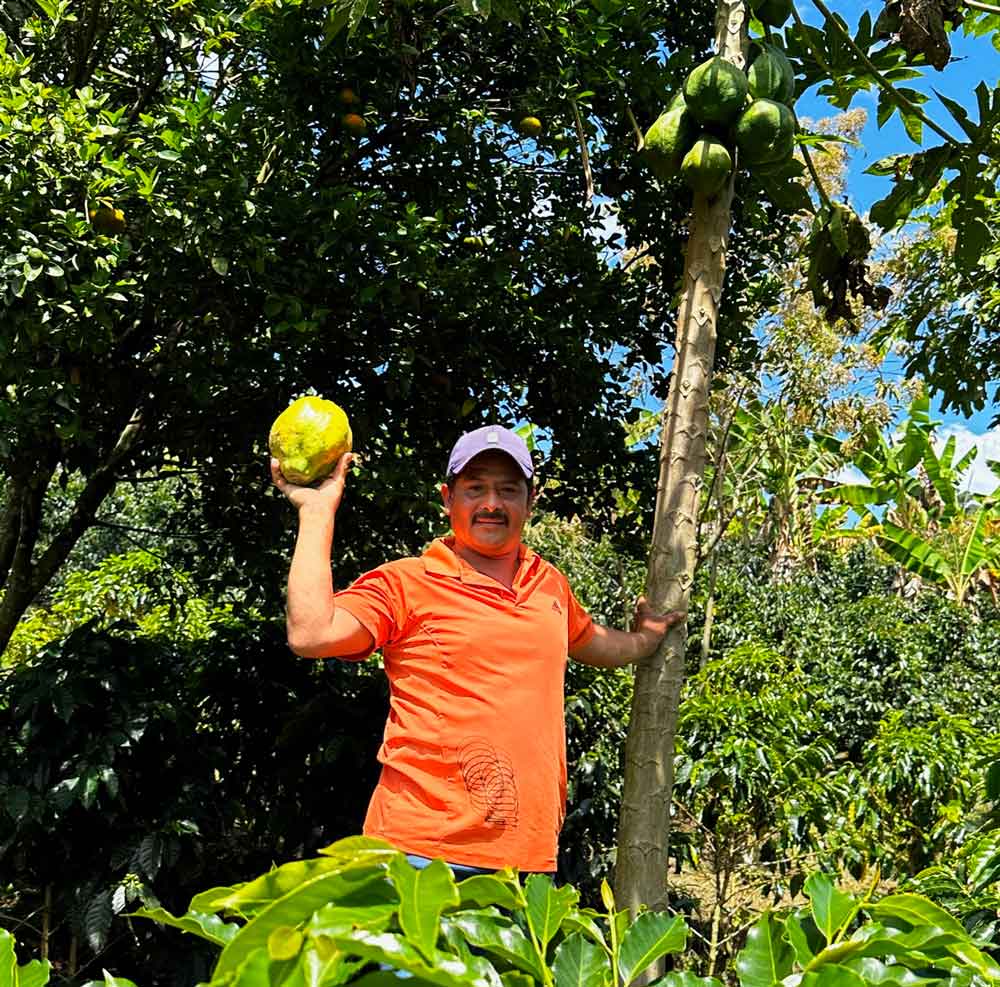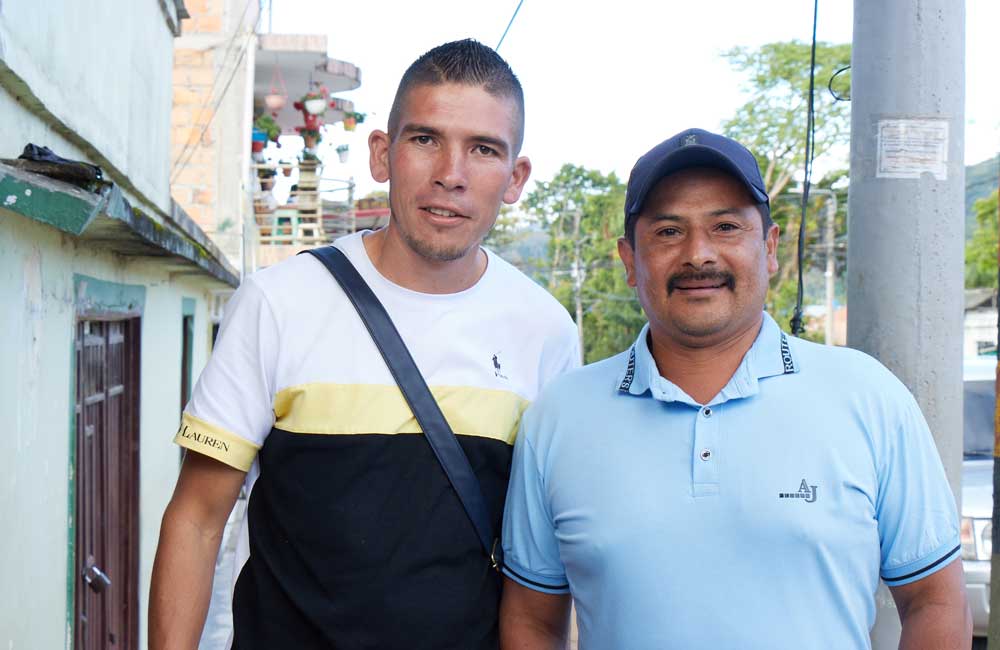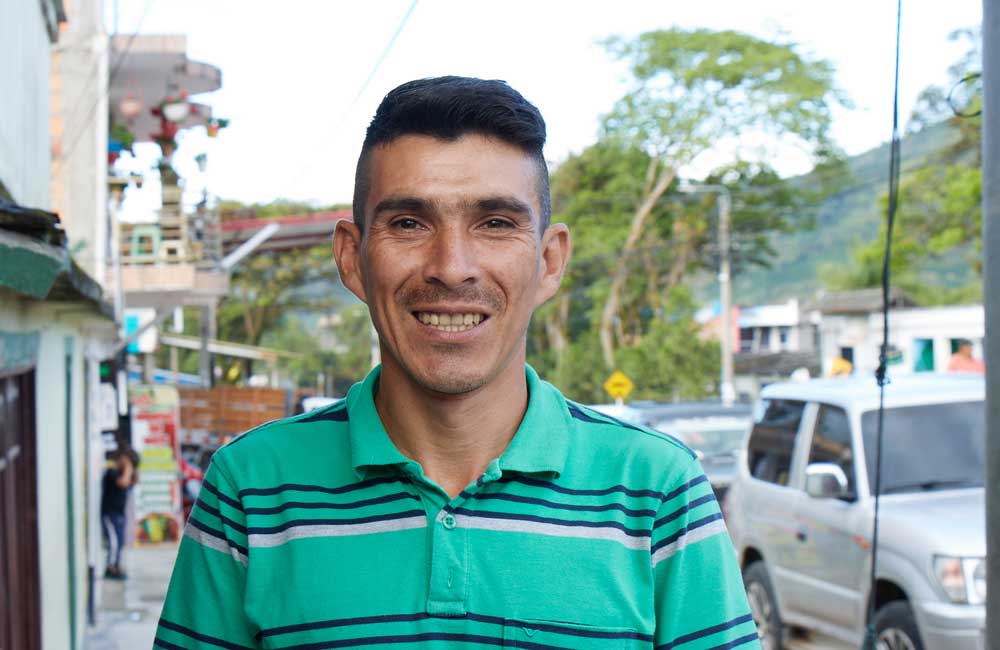Filter & Espresso
Cotton candy, strawberry, cookie dough
Huila | |
1,635m. | |
Pacamara | |
Washed Anaerobic 90h | |
Smallholders | |
Harvest 2022 |
The name of this coffee refers to an exciting project developed by Catalina, from CATA Coffee. It aims to give visibility and improve the conditions of small coffee producers in the municipality of Salado Blanco, in the Huila coffee region, Colombia.
The project is based upon giving support and advice to small producers in this region, who until now have not received it and lacked the necessary knowledge to grow specialty coffees.
Thanks to this project we are able to present to you a great coffee, with the knowledge that we are also supporting small producers having better living conditions.
Project CATA

CATA coffee has trained and advised coffee farmers with farms of less than 1.5 hectares so that they can grow specialty coffees.
Many of them had never considered, or were even aware of, the possibility of growing specialty coffee. Even though they had been growing coffee for years, some even generations ago.
For this reason, they have been trained in soils, clean agriculture, maintenance of mills,
tanks, water treatment, bag fermentation, physical and sensory advice ensuring that the coffee that is produced is in accordance with the highest processing standards.
This has allowed the creation of a special lot that, although coming from different producers under the supervision of the CATA project, has the best conditions to apply a special process such as 90-hour anaerobic fermentation.
The improvement and control of cultivation, classification and processing has allowed these small producers to achieve much better prices for their coffees. This translates into better living conditions for them.
Variety and Growing Conditions

The variety chosen for this batch has been the Pacamara. This variety is a hybrid between the Paca and Maragogipe variety and is characterized by large beans.
This variety was developed in El Salvador fifty years ago and is regularly present and wins the “Cup of Excellence” competition.
It has been cultivated at about 1636 meters above sea level. The Huila region has ideal environmental conditions for growing specialty coffees, one of the reasons it is famous.
Coffee processing
Only the best cherries at their optimum point of ripeness have been used for this batch. Once picked, the cherries are left to oxidize for 24 hours before going through anaerobic fermentation.
Anaerobic fermentation means introducing the cherries into sealed tanks so that oxygen does not go in. This generates a process that allows the microorganisms that are responsible for the breakdown of glucose molecules into simpler ones to act.
The purpose of an anaerobic fermentation is to achieve a specific cup profile by the transfusion of sugars to the bean.
Once the anaerobic fermentation is complete, the cherries are pulped and washed following the traditional washed process.
Drying takes place on raised beds for about twenty days, depending on weather conditions, until reaching a bean moisture level of eleven percent.
In this coffee you may taste notes of cotton candy, strawberry and sponge cake.
Impact of Specialty Coffee on Local Communities
We always repeat, and we’ll not get tired of doing it, that specialty coffee is much more than a delicious and curated sensory experience.
The term specialty coffee also means that everyone involved in the production chain receives a fair reward for their work which allows them a decent life. This, in addition to using environmentally friendly cultivation and processing methods.
Projects like this go one step further, not only ensuring that coffee farmers receive a decent payment, but also striving to create the right conditions for this to be possible when they are not present in their places of origin.



